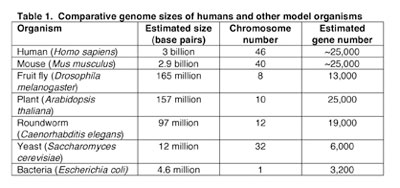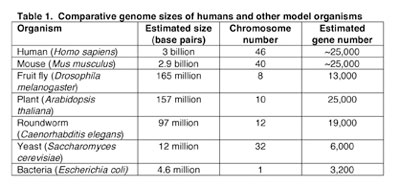The diploid number for fruit flies is 8 while that for crickets is 32. If no crossing over took place, would the genetic variation among offspring from a given pair of parents be greater in fruit flies or crickets?
1 Answer
Please remember that genetic variability will not depend on the number of chromosomes but on the number of genes and their alleles. It will not even depend on amount of DNA present in genome and its true that number of base pairs in many cricket genomes could be more than that of fruit fly, but the same cannot be true for the number of genes.
Explanation:
This is really a unique question. I do have some idea about fruit fly genome where more than 15,000 genes are reported to be present, but i do not have any clue about number of genes present in cricket. Please find it out for yourself.
Please note that genetic variation within a population is measured as the percentage of gene loci that are polymorphic which means such genes have multiple alleles. Obviously when there are more number of genes in the genome, chances of polymorphic loci will increase.
Now remember that more number of genes could be accommodated in less number of chromosomes: hence diploid number is not an indication of number of genes present in the genome. From the table below you would find out that organisms with small size of genome may have large number of chromosomes:

( )
)
I would like to add that house cricket Acheta domesticus has 21 chromosomes in male and 22 in female (XO/XX type sex determination). Most commonly studied fruit fly Drosophila melanogaster has 8 chromosomes in both sexes (XY/XX type sex determination).
